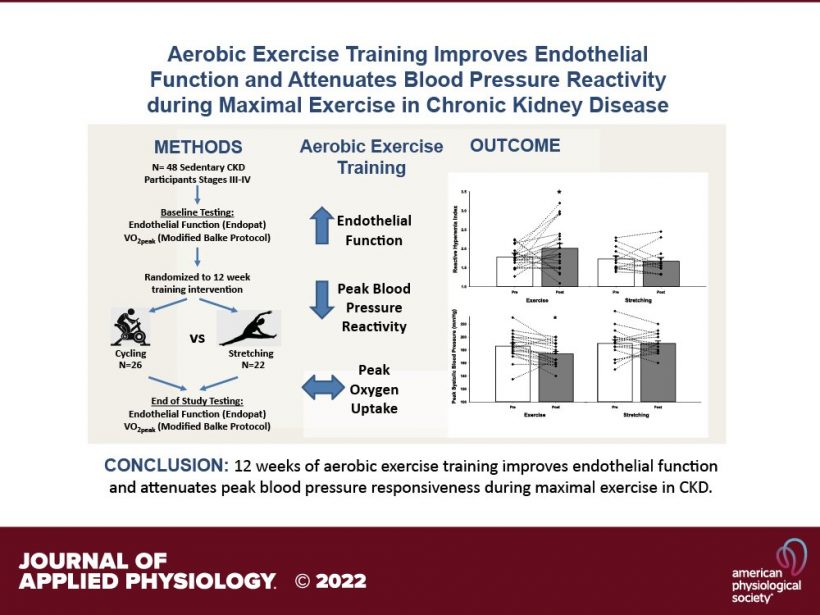
Structured aerobic exercise training over 12 weeks improves blood vessel function in people with stage 3 and 4 chronic kidney disease (CKD), according to a new study by physiologists at Emory University School of Medicine in Atlanta. Researchers also found that exercise reduced blood pressure reactivity in this population. The article is published ahead of print in the Journal of Applied Physiology.
This study was conducted in 38 men—primarily Black men—and 10 women with CKD who were randomly split among a structured and a supervised group. The aerobic “spin” group rode stationary bikes and the non-aerobic group participated in stretching and balance exercises three days a week. The exercise duration began at 20 minutes per session and progressed by one to two minutes before reaching a maximum of 45 minutes.
People with CKD often experience an exaggerated increase in blood pressure during exercise. That increase is associated with an increased risk of cardiovascular disease. The research team hypothesized that regular aerobic exercise training would improve vascular function and reduce blood pressure reactivity during exercise in CKD patients with moderate to severe renal disease, which was confirmed by the study findings.
https://youtube.com/watch?v=TyZQQTmDVzM%3Fcolor%3Dwhite
“These findings provide support for the notion that exercise is safe and beneficial in this population,” said Justin Sprick, Ph.D., first author of the study. “In addition, regular aerobic exercise training may translate to a reduction in future cardiovascular risk in CKD, although more work is required to confirm. This is important because cardiovascular disease is the leading cause of death in CKD.”
According to the Centers for Disease Control and Prevention:
- 37 million people in the U.S. have CKD,
- nine out of 10 U.S. adults with CKD don’t know they have it, and
- CKD is more common in U.S. adults 65 and older.
Source: Read Full Article
